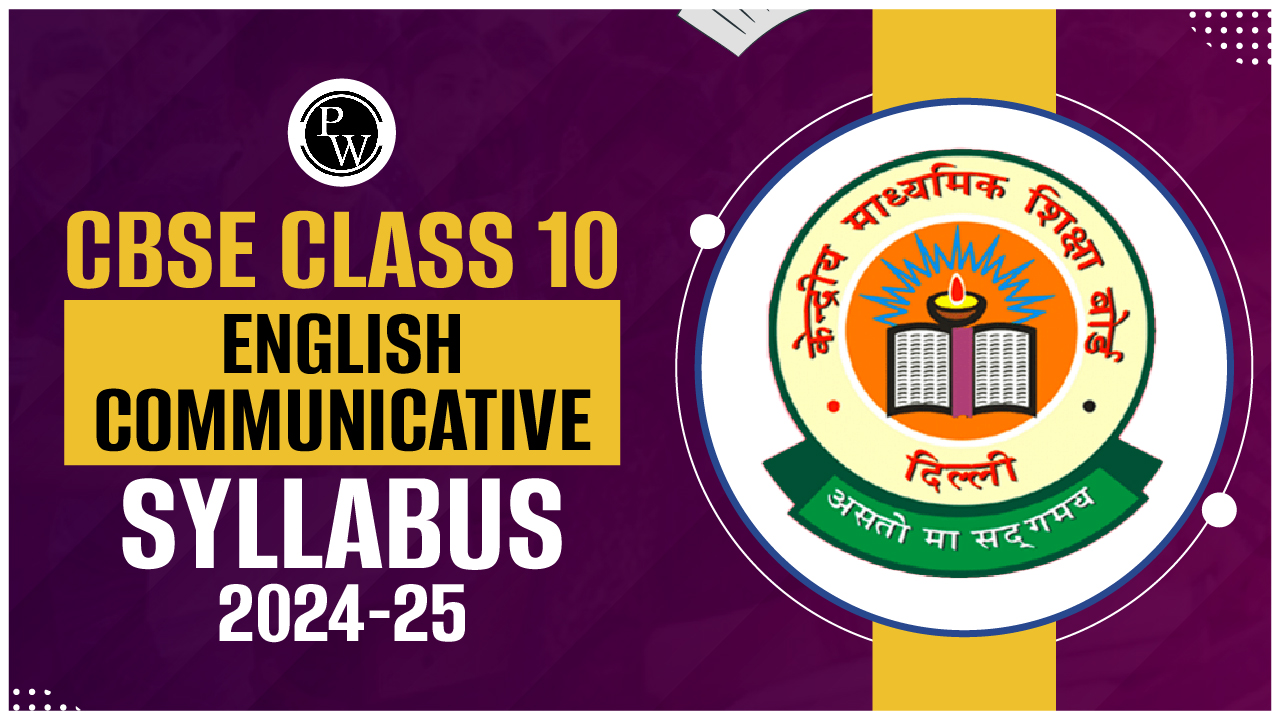JEE Mains vs JEE Advanced - Differences, Pattern, Syllabus 2025

JEE Mains vs JEE Advanced: The Joint Entrance Examination, commonly known as JEE, is one of the most prestigious engineering entrance exams in India. It is conducted in two stages: JEE Main and JEE Advanced. The JEE Main 2026 is scheduled to be held in two sessions. The first session will take place in January 2026, and the second session is likely to be conducted in April 2026. The JEE Advanced 2026 is tentatively set for May 28, 2026.
The National Testing Agency (NTA) conducts JEE Main, while one of the IITs conducts JEE Advanced on a rotational basis. Clearing JEE Main is mandatory to appear for JEE Advanced. This exam opens the doors to NITs, IIITs, GFTIs through JEE Main and to prestigious IITs through JEE Advanced. In this article, we will discuss JEE Mains vs JEE Advanced - Differences, Pattern, Syllabus 2025 and give a complete guide to help aspirants prepare better.
Check Out: IIT JEE Books
JEE Mains vs JEE Advanced
JEE Mains is conducted for admission to NITs, IIITs, and other centrally funded institutions. It tests the candidates’ understanding of Physics, Chemistry, and Mathematics based on the Class 11 and 12 NCERT syllabus. The questions are mostly objective type and designed to check the fundamental understanding of concepts.
To appear for JEE Advanced, candidates must first clear JEE Mains with a good percentile score and rank. Only the top 2,50,000 candidates from JEE Mains are shortlisted for JEE Advanced.
While JEE Advanced is conducted for admission to the Indian Institutes of Technology (IITs). It is considered one of the toughest engineering entrance exams in India. The exam includes multiple-choice, numerical value, and comprehension-based questions that test the candidate’s in-depth conceptual knowledge in Physics, Chemistry, and Mathematics.
Unlike JEE Mains, JEE Advanced does not have a fixed pattern and may include different types of questions each year. It requires not only knowledge but also analytical skills and time management.
Check Out: JEE Previous Year Papers
JEE Exam Pattern
The JEE exam is one of the most important steps for students who want to get into top engineering colleges like IITs, NITs, and IIITs. It happens in two parts, JEE Main and JEE Advanced. Both of them follow different patterns, so it’s really helpful for students to know how each one works.
When you understand the number of questions, the time limit, and the type of questions asked, it becomes easier to prepare in the right way. JEE Main usually covers basic topics from Classes 11 and 12, while JEE Advanced asks more tricky and deep questions.
|
Particulars |
JEE Mains |
JEE Advanced |
|
Conducting Body |
National Testing Agency (NTA) |
One of the IITs |
|
Number of Papers |
Paper 1 (for BTech), Paper 2A & 2B |
Paper 1 and Paper 2 (both mandatory) |
|
Subjects |
Physics, Chemistry, Mathematics |
Physics, Chemistry, Mathematics |
|
Mode |
Online (Computer-Based Test) |
Online (Computer-Based Test) |
|
Duration |
3 hours |
3 hours per paper (6 hours total) |
|
Question Types |
MCQs and Numerical Value Questions |
MCQs, Integer, Paragraph type |
|
Marking Scheme |
+4 for correct, -1 for incorrect |
Varies each year |
JEE Syllabus
The JEE syllabus is mainly based on the topics covered in Classes 11 and 12 from the NCERT books. For JEE Main, the questions are usually direct and based on important concepts from Physics, Chemistry, and Maths.
In JEE Advanced, the syllabus is almost the same, but the level of questions is more complex and often combines multiple concepts in one question. So, students preparing for both exams should focus on clearing their basics first and then gradually move on to solving higher-level questions, especially for JEE Advanced. Check out the JEE Syllabus:-
|
Subject |
JEE Main Topics |
JEE Advanced Topics |
|
Physics |
Kinematics, Laws of Motion, Work, Energy, Power, Gravitation, Thermodynamics, Oscillations and Waves, Electrostatics, Current Electricity, Magnetism, Optics, Modern Physics |
Includes all JEE Main topics + more focus on problem-solving, experimental physics, complex numericals |
|
Chemistry |
Some Basic Concepts of Chemistry, Structure of Atom, Equilibrium, Chemical Bonding, Thermodynamics, Redox Reactions, Hydrocarbons, Polymers, Biomolecules, Environmental Chemistry |
Includes all JEE Main topics + advanced concepts in Physical, Organic, and Inorganic Chemistry |
|
Mathematics |
Sets, Relations, Functions, Trigonometry, Limits, Continuity, Differentiation, Integration, Probability, Matrices, Vectors, 3D Geometry, Complex Numbers, Statistics |
Same topics as JEE Main but questions are more concept-based and involve application of multiple topics |
Check Out: JEE Revision Books
How to Prepare for JEE Main and Advanced?
1. Understand the Exam Pattern First
Before you begin studying, it’s very important to understand how the exams are conducted. JEE Main has mostly single-correct MCQs and numerical value questions.
JEE Advanced is tougher and includes multiple correct answers, integer-type questions, and match-the-following type too. Knowing this difference helps you prepare the right way from the beginning.
|
Exam |
Mode |
Number of Papers |
Subjects |
Type of Questions |
|
JEE Main |
Online |
1 (Paper 1) |
Physics, Chemistry, Maths |
MCQs, Numerical value |
|
JEE Advanced |
Online |
2 (Paper 1 and 2) |
Physics, Chemistry, Maths |
MCQs, Integer-type, Match type, Paragraph |
2. Make a Daily Study Timetable
A proper timetable keeps your day structured and helps you stay consistent. You don’t have to study all day, but you must make sure each subject gets enough time. Also, keep 1 hour daily for revision and practice tests.
|
Time |
Activity |
|
5:30 am - 6:30 am |
Wake up and revise formulas |
|
6:30 am - 7:30 am |
School preparation/breakfast |
|
8:00 am - 2:00 pm |
School hours |
|
2:00 pm - 3:00 pm |
Lunch and rest |
|
3:00 pm - 5:00 pm |
Study (Physics or Maths) |
|
5:00 pm - 6:00 pm |
Break/Exercise |
|
6:00 pm - 7:30 pm |
Study (Chemistry or weak topics) |
|
7:30 pm - 8:30 pm |
Dinner and relaxation |
|
8:30 pm - 10:00 pm |
Practice questions/mock tests |
3. Focus on Strong and Weak Areas
Every student has strong and weak subjects. The goal is to make weak topics better and strong ones even sharper. So, don’t skip your weak chapters. Instead, revise them regularly and solve easier questions first to build confidence.
-
Revise tough topics weekly
-
Give extra time to difficult chapters
Check Out: JEE Question Banks
4. Know the Important Topics for Both Exams
Knowing which topics are more important can save a lot of time. Some chapters have higher weightage and more chances of appearing in the exams. Prepare these topics really well.
|
Subject |
JEE Main Topics |
JEE Advanced Topics |
|
Physics |
Laws of Motion, Work, Power, Energy, Modern Physics, Current Electricity, Kinematics |
Rotational Motion, Capacitors, EM Waves, Wave Optics, Electrostatics |
|
Chemistry |
Mole Concept, Chemical Bonding, Thermodynamics, Coordination Compounds, Hydrocarbons |
Surface Chemistry, Qualitative Analysis, Named Organic Reactions |
|
Maths |
Quadratic Equations, Complex Numbers, Matrices, Calculus, Probability |
3D Geometry, Vectors, Definite Integrals, Inverse Trigonometry |
5. Practice Daily and Give Mock Tests
Just reading won’t help unless you solve questions daily. Try to solve both basic and tough questions. Also, start giving mock tests every week. It helps with speed, accuracy, and confidence.
-
Solve 20–30 questions per subject daily
-
Give one full mock test every Sunday
-
Analyse your test mistakes and revise them
7. Focus on Revision and Short Notes
Revision is the key to remembering concepts in the long run. Make small notebooks for formulas, tricks, and key points. This helps during the final days before the exam when there’s less time.
-
Make formula charts for Physics and Maths
-
Highlight key reactions in Chemistry
-
Revise from your short notes every weekend
Read More: IIT Full Form - Details about JEE Mains and Advanced Exams
JEE Main vs. JEE Advanced FAQs
1. What is the difference between JEE Main and JEE Advanced?
JEE Main is the first-level exam for admission into NITs, IIITs, and other engineering colleges. JEE Advanced is the second-level exam, only for those who clear JEE Main and wish to get into the IITs.
2. How many times can I appear for JEE Main?
You can appear for JEE Main up to three times in three consecutive years after passing Class 12. Each year, the exam is conducted in two sessions, and you can appear in both.
3. Can I appear for JEE Advanced without clearing JEE Main?
No, only the top 2.5 lakh scorers of JEE Main are eligible to appear for JEE Advanced.
4. Is NCERT enough for JEE preparation?
NCERT books are good for building concepts, especially for Chemistry. However, for JEE Main and especially JEE Advanced, you need to refer to extra books and solve advanced-level questions.
5. Is it possible to crack JEE in one year?
Yes, many students crack JEE in one year with full focus, regular study, concept clarity, and smart practice.











